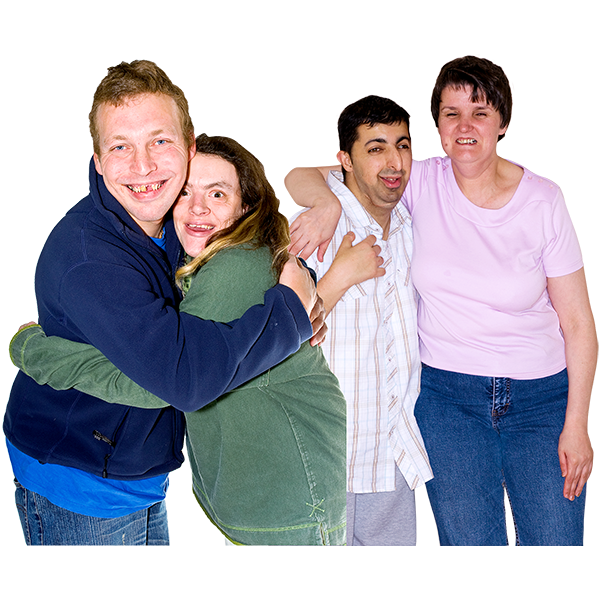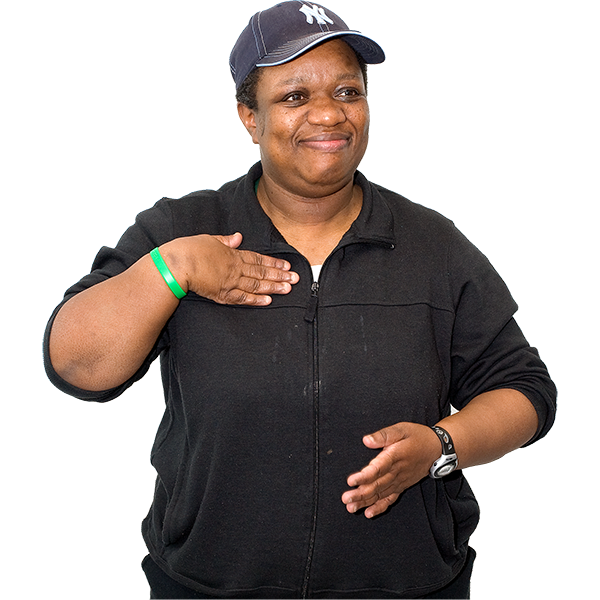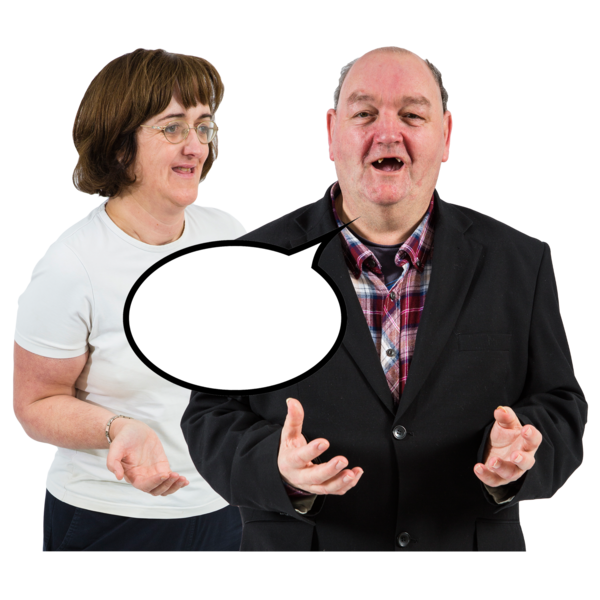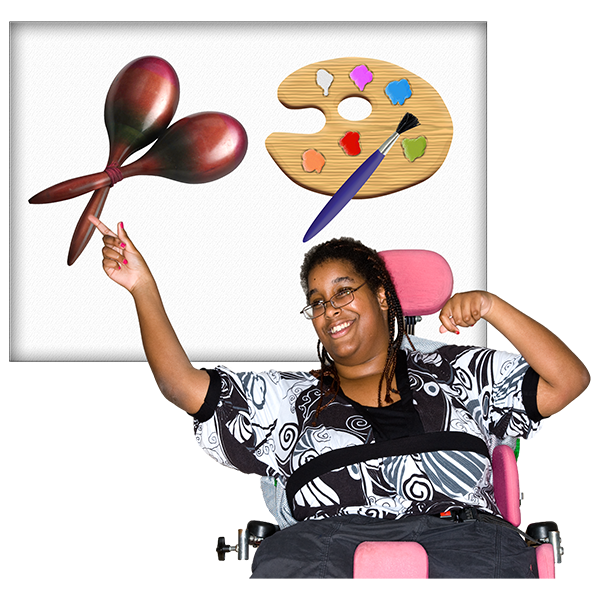The importance of storytelling
What do we mean by storytelling?
In this context, ‘story telling' is about people being able to express their feelings and emotions and being given the time and space to tell their own story to trusted carers and family.
Our storytelling recommendations
1. Friendships should be an important part of support plans
Proactive support, a prerequisite for
relationships
 Relationships are about the people in your life. You might have different types of relationships like friendships, family relationships, or a boyfriend or girlfriend.
to thrive, requires structural support. Support plans should automatically contain information on friendships and relationships.
Relationships are about the people in your life. You might have different types of relationships like friendships, family relationships, or a boyfriend or girlfriend.
to thrive, requires structural support. Support plans should automatically contain information on friendships and relationships.
This would provide a space/permission for people with a
learning disability
 A learning disability is to do with the way someone's brain works. It makes it harder for someone to learn, understand or do things.
to regularly review and share their hopes and any questions. It would also support the cultural shift required amongst staff and organisations in prioritising relationships within social care.
A learning disability is to do with the way someone's brain works. It makes it harder for someone to learn, understand or do things.
to regularly review and share their hopes and any questions. It would also support the cultural shift required amongst staff and organisations in prioritising relationships within social care.
2. All people with a learning disability should have the chance to tell their story.
Storytelling helps build empathy amongst those listening and helps build identity in those telling their story. We all tell stories; at work, at school, time spent with friends outside school or after work. But some people with a learning disability don’t have these opportunities.
We do not mean storytelling to create case studies, or for evaluation’s sake. People should be supported to tell the story of their life, where they grew up, who they are and the challenges they have faced, even if this is emotional for them. We believe there is also scope for organisations to embrace storytelling techniques in more formal ways for recording the events of someone’s life.
It was also felt that care plans focus too much on compliance and ticking boxes. We should work to ensure that care plans are shaped by the people we support, and not on compliance.
Could a one-page profile be replaced with a one-hour recording of someone’s life? Can staff learn what the people they support like, not by reading documents but by listening to the stories they tell? In our experience how someone tells their story, their tone of voice, the way they say certain words can tell us much more than the printed word ever can.
Storytelling can help us understand who the people we support are, who they were and who they want to be.
3. Offer people with a learning disability ongoing spaces for conversations around friendships and relationships.
Many people with a learning disability had few positive comments about their experience of Relationships and
Sexuality
 Sexuality is how you feel about yourself and your body. It is about finding out and knowing what feels right for you.
Education
Sexuality is how you feel about yourself and your body. It is about finding out and knowing what feels right for you.
Education
 Education is when you learn things. When you fill in a form to get a job, education means you write where you went to school, college or university.
(RSE). Traditionally the focus has been on safeguarding against harm; pregnancy/STIs with little room for a more holistic interpretation. Much confusion and fear persist for people with a learning disability and there is a need for an ongoing safe space to explore questions.
Education is when you learn things. When you fill in a form to get a job, education means you write where you went to school, college or university.
(RSE). Traditionally the focus has been on safeguarding against harm; pregnancy/STIs with little room for a more holistic interpretation. Much confusion and fear persist for people with a learning disability and there is a need for an ongoing safe space to explore questions.
This responsibility sits with us all, particularly schools, families,
advocacy
 Advocacy is when you get support to have your say.
movements, providers, and day centres. Training sessions on relationships and sexuality in isolation do not appear to be sufficient; instead, training should be one part of the approach to developing practical skills, understanding of emotions and understanding of self.
Advocacy is when you get support to have your say.
movements, providers, and day centres. Training sessions on relationships and sexuality in isolation do not appear to be sufficient; instead, training should be one part of the approach to developing practical skills, understanding of emotions and understanding of self.
4. Early years support for families around relationships and sexuality
A consistent theme to emerge from the stories was the central role families played in supporting intimate relationships. Without pro-active facilitation from families, it is unclear if relationships would flourish. Families need support to understand their role in supporting identity and agency.
One way to do this is to work with the families of young children with a learning disability. We need to provide support to families before their children reach puberty, to prepare them and give them the confidence they need to support their children to enter into relationships. We should support families to allow their children to see that they have power, agency and can make decisions, that mistakes can and will be made but that’s okay.
5. Support for families and people with a learning disability around positive risk taking
It can be scary for parents, families to let go and allow their children to take risks. Equally, it can be daunting for individuals to make this leap. For most people, the most significant positive risk-taking takes place during teenage years. But people with a learning disability, their families and carers need extra support to facilitate this.
We need to proactively engage with and support families, to explore and understand their real concerns and work with them to put in place mitigations to allow everyone to let go and begin exploring
independence
 Independence means doing things on your own. Making your own choices.
.
Independence means doing things on your own. Making your own choices.
.
The sensible time for this is between primary and secondary aged- education. But we know that for many people today this hasn’t happened and needs to take place regardless of the individual's age.
It is best for an individual’s well-being that these conversations take place before parents are unable to support a move to a more independent life.
6. Re-think the role of support staff
Job descriptions and recruitment processes should explicitly reference supporting people with a learning disability, friendships, and intimate relationships.
If social care is to realise its aspiration to secure a good life for people with a learning disability, the role of support staff needs to be re-framed with an emphasis on supporting people with a learning disability to build connections – including pro-active support of intimate relationships.
7. Support social care staff to understand people’s right to have relationships and explore their sexuality
Support staff often feel they lack the knowledge, skills, permission and safety to support intimate relationships for people with a learning disability.
Induction
 An induction is when someone shows you where things are and what you need to know. You will get an induction if you start a new job at Mencap.
and ongoing training need to address this.
An induction is when someone shows you where things are and what you need to know. You will get an induction if you start a new job at Mencap.
and ongoing training need to address this.
Concerns and fears about safeguarding are often prioritised at the expense of
rights
 Rights are the things everyone should be allowed to do like have a say, or go to school.
.
Rights are the things everyone should be allowed to do like have a say, or go to school.
.
Relationships are often peripheral within a support context. In part, this is due to the fear of getting it wrong and unconscious bias. Staff need to have the confidence and competence to proactively support relationships, and this will require an investment in training, starting with induction.
8. More formal peer-support networks to help people work together
In consultations around our findings, service providers identified the need to share practice across organisations.
People with a learning disability highlighted the need for opportunities to come together to talk about friendships and relationships.
People are not always aware of the opportunities that already exist. Regional networks could support interaction across providers.
9. All organisations supporting people with a learning disability should develop a relationship and sexuality policy
This will ensure that support staff have clarity around their role and allow them to engage in pro-active support of intimate relationships.
Policy must support a holistic understanding of relationships and sexuality providing space for staff to support people with a learning disability to explore sexuality in the broadest sense.
It is also important that staff understand their role in involving and exploring with family members the importance of relationships including intimate relationships.